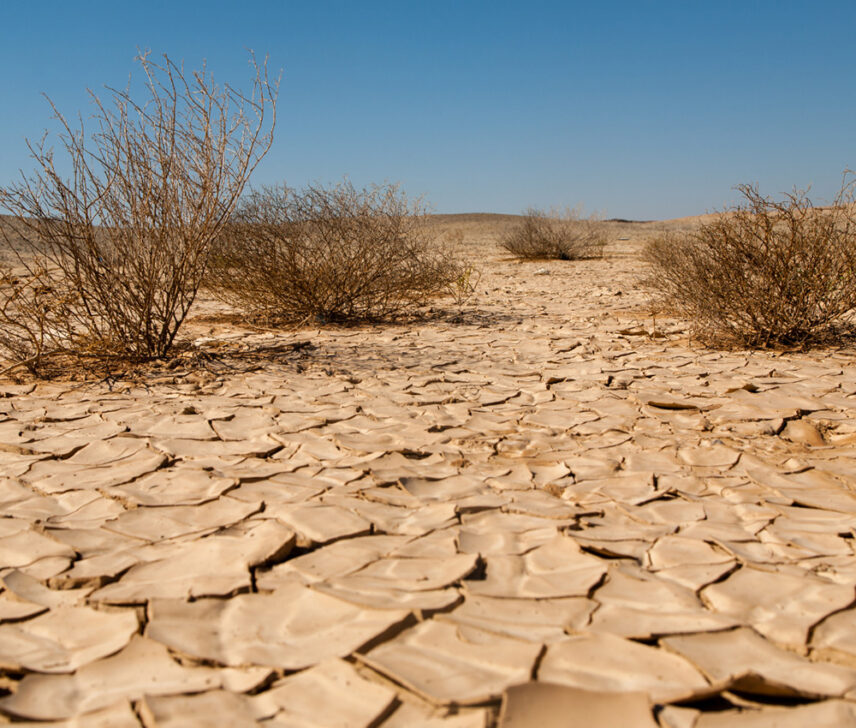In 1 Kings, chapter 17, the prophet Elijah (meaning “my God is the Lord”) is introduced. He came from Tishbeh, but nothing is known of his origins. Instead, he suddenly comes on the scene and challenges the King of Israel, Ahab – announcing a drought. There will be neither dew nor rain for years until Elijah declares it. Then the Lord instructs Elijah to hide near the brook of Cherith, where the Lord sends ravens to feed him. After the brook dries up, the Lord directs Elijah to a neighbouring country and uses a widow to be his provision during the drought.
The widow is on her last handful of flour and portion of oil and expects that she and her son will starve after baking one more meal. Elijah requests that she make her bread, feed him first, and then make some for herself and her son. He says that the flour nor the oil will be empty until the day the Lord sends rain on the face of the earth. The widow obeys Elijah, and miraculously, neither the flour nor oil runs out for the duration of Elijah’s stay with them!
After some time, the widow’s son becomes sick and dies. Elijah takes the boy to his room and calls out to the Lord for mercy, and this is the first time in Scripture that we see anyone raised back to life from the dead. The son is restored to life, and the widow’s faith is further confirmed – proclaiming that Elijah is a man of God and the word of the Lord in his mouth is truth.
In Chapter 18, during the third year of the drought, the Lord instructs Elijah to present himself to King Ahab to tell him that God will send rain again. At this time, King Ahab and Obadiah (a God-fearing head servant for the king) had searched for any sign of water or grass for the livestock.
Elijah meets Obadiah, asking for a meeting with King Ahab. When Obadiah returns to relay Elijah’s request, he fears that King Ahab will kill him if Elijah hides again because of the oath that every nation and kingdom was forced to take, declaring that they genuinely didn’t know the whereabouts of Elijah. Obadiah was subject to these conditions as well. But Elijah reassures him, and Obadiah arranges the meeting.
Elijah rebukes King Ahab’s entanglement with the false god Baal at the meeting and declares a divine face-off to see whose god can fulfill the challenge of setting fire to an ox prepared on an altar.
The prophets of Baal call upon their god all day long to rain fire from heaven but to no avail. Then Elijah builds an altar of stones, digs a moat around it, puts the sacrifice on the wood and calls for water to be poured over his sacrifice three times. Finally, Elijah calls upon God, and He sends fire down from heaven, burns the sacrifice, the wood, the stones, and licks up the water in the trench. God proved He was more powerful than the false god. It was then that Elijah and the people killed all of the false prophets of Baal.
After this, Elijah went to the top of Mount Carmel and prayed to God. The drought ended, and the Lord sent rain once again.
In these two chapters of 1 Kings, people’s faith in God and God’s trustworthiness is being tested through their response in obedience:
- declaring drought and believing God would bring it to fruition
- trusting the Lord’s sustaining through being fed by birds while in hiding
- the miraculous reproduction of flour and oil through obedience and faith
- a little boy dead and being restored back to life
- stepping into a situation where Elijah was coming out of hiding and boldly calling out King Ahab and the prophets of Baal
- creating an impossible altar sacrifice situation and believing in the God of the impossible to prove Himself to everyone present
- asking/calling on God to bring rain again (today!) after years of drought.
We can see that when we are attentive to God’s voice and are walking in obedience to Him, He will fulfill our needs (in His ways, which could include provision through birds).
Elijah struggled with typical human frailties, yet he was used mightily by God.
It may not be through such obviously miraculous displays of might, but if we are yielded to God, He can use us powerfully for His kingdom’s purposes too.
By: Susanne Fordham
